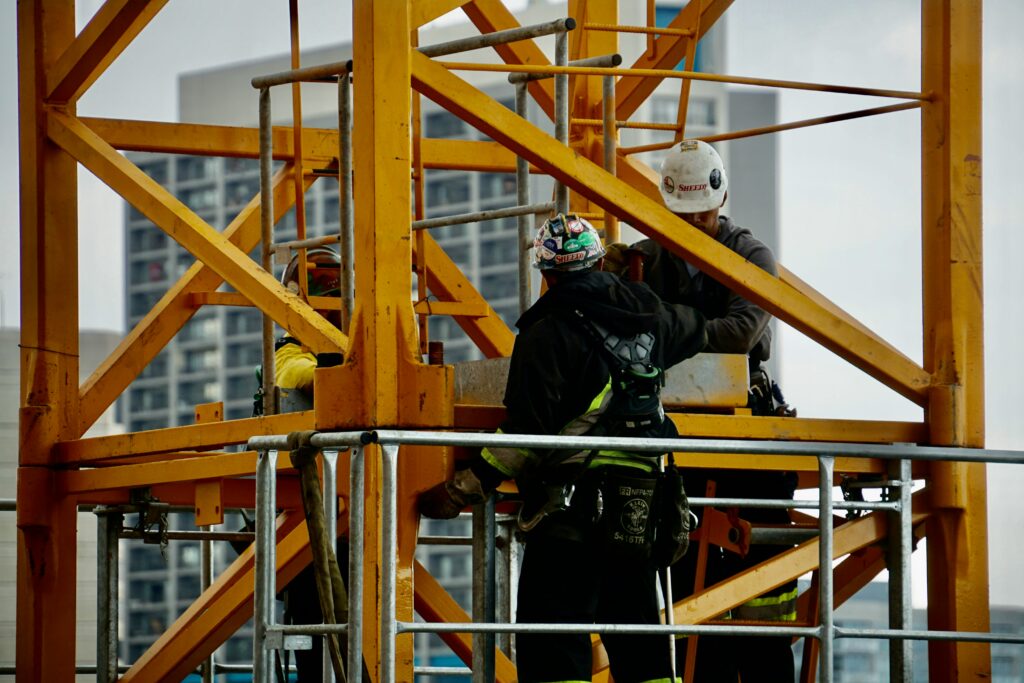

Logistics is an important cornerstone of every industry, with statistics indicating that 2.7 million logistics roles accounted for an estimated 8.2% of total employment in the UK. With it being such a prominent factor of the economy in the country, it should be something that’s at the forefront of business minds.
Wincanton, logistics partner and expert in the field, outlined that logistics within the construction industry alone has been criticised for being “poorly planned, uncoordinated, disruptive, and wasteful.” Experts believe in integrating logistics as a key factor in delivering a smooth-running project, with the benefits showing why it should be considered and planned in the early stages.
Improved scheduling with better quality
Whether it’s delays in the delivery of materials required for a project or a lack of the appropriate equipment or machinery, downtime can have a huge impact on when your project is delivered. Data taken from nPlan’s analysis of project delays found that a staggering near quarter of all projects end up being delivered more than 250 days late.
Integrating logistics from an early point in project planning can improve efficiency in scheduling. This way, you can guarantee that your labourers and workforce have the correct materials and tools to get started and deliver results to deadlines. This means less delays and downtime from the workforce onsite, in addition to staying within budget.
By improving the scheduling process, more time can be allocated towards stocking materials while placing greater emphasis on enhancing the quality of workplace life for labourers. This not only helps to streamline the project timeline but also ensures that it stays on schedule.
Cost saving and procurement
Planning logistics in the early stages of the project means significant cost savings across the board. Wincanton’s research found that as high as six per cent of a project’s total value is made up of logistics. While this might not seem like much, for bigger infrastructure projects that can reach £1 billion, this would equate to £60 million dedicated to logistics.
This is where integrated approaches to logistics can help to save on costs. Research has shown that this approach could save 20% through consolidating delivery costs, as well as limiting the over-ordering that can occur on projects. Not only can these streamlined logistics approaches save costs on delivery and the amount of materials ordered, but they can also help remove the hidden costs that occur during the procurement phase. Especially when integrated earlier in the planning process, local suppliers can be contacted and used to ensure that all costs and spending are kept within regions to help local economies.
Sustainability and accountability
Industries putting sustainability and holding themselves accountable for their carbon footprint is a huge conversation that has made its way into logistics. Clients want to be assured that their projects are green-focused to maintain positive perceptions from customer and their partners.
Integrating logistics in a timely fashion before the beginning of the project can help not only reduce the number of vehicles travelling and delivering to sites but also allow you to evaluate how your deliveries are carried out. This could be done by exploring other delivery methods rather than trucks and road vehicles, opening possibilities of rail, water, and other methods that could be greener and result in less carbon emissions.
Alternatively, it can allow projects to review the type of fleets used for these deliveries and how the fuel utilised could help further reduce the environmental impact on residents and communities in the area. This could be done by using electric vehicles (EVs) or naturally occurring compressed or liquified gases (CNG and LNG, respectively).
Project visibility and reporting
Planning for logistics and partnering with specialists can ensure end-to-end visibility across the supply chain. This offers:
• Full visibility on what materials, items, and equipment have been ordered, when they’re due to arrive, where they are in transit, and if there are any issues or delays.
• Updated compliance data with route information, which can be used to engage with local communities and their standards.
• Reporting data that can range from the emissions produced from your logistics, inventory onsite, and total vehicle movements to help make informed decisions at every project stage.
• Tracing and tracking of every component and product to ensure every item arrives at its target location.
read more
- SEO Powered Content & PR Distribution. Get Amplified Today.
- PlatoData.Network Vertical Generative Ai. Empower Yourself. Access Here.
- PlatoAiStream. Web3 Intelligence. Knowledge Amplified. Access Here.
- PlatoESG. Carbon, CleanTech, Energy, Environment, Solar, Waste Management. Access Here.
- PlatoHealth. Biotech and Clinical Trials Intelligence. Access Here.
- Source: https://www.logisticsbusiness.com/transport-distribution/haulage-freight-forwarding/why-you-must-consider-logistics-early-in-your-project/



